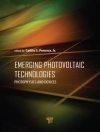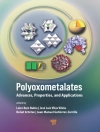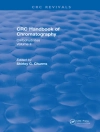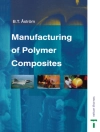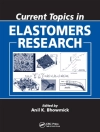A comprehensive overview of current empirical valence bond (EVB) theory and applications, one of the most powerful tools for studying chemical processes in the condensed phase and in enzymes.
* Discusses the application of EVB models to a broad range of molecular systems of chemical and biological interest, including reaction dynamics, design of artificial catalysts, and the study of complex biological problems
* Edited by a rising star in the field of computational enzymology
* Foreword by Nobel laureate Arieh Warshel, who first developed the EVB approach
Tabla de materias
List of Contributors
Foreword
Arieh Warshel
Chapter 01. Modeling Chemical Reactions Using Empirical Force Fields
Tibor Nagy and Markus Meuwly
Chapter 02. Introduction to the Empirical Valence Bond Approach
Fernanda Duarte, Anna Pabis and Shina Caroline Lynn Kamerlin
Chapter 03. Using Empirical Valence Bond Constructs as Reference Potentials for High-Level Quantum Mechanical Calculations
Nikolay Plotnikov
Chapter 04. Empirical Valence Bond Methods for Exploring Reaction Dynamics in the Gas Phase and in Solution
Jeremy Harvey, Michael O’Connor and David Glowacki
Chapter 05. Empirical Valence Bond Models Based on Polarizable Force Fields for Infrared Spectroscopy
Florian Thaunay, Florent Calvo, Gilles Ohanessian and Carine Clavaguéra
Chapter 06. Empirical Valence Bond Simulations of Biological Systems
Avital Shurki
Chapter 07. The Empirical Valence Bond Approach as a Tool in the Design of Artificial Catalysts
Monika Fuxreiter and Letif Mones
Chapter 08. EVB Simulations of the Catalytic Activity of Monoamine Oxidases: From Chemical Physics to Neurodegeneration
Robert Vianello and Janez Mavri
Sobre el autor
Lynn Kamerlin, Professor, Department of Cell and Molecular Biology, Uppsala University
Professor Kamerlin is a full?Professor?of Structural Biology at Uppsala University, as well as an ERC Starting Independent Researcher and a Wallenberg Academy Fellow. She is also the current Chair of the Young Academy of Europe (YAE). Her research interests span theoretical physical organic chemistry, phosphate and sulfate chemistry, the mechanisms of enzyme reactivity, specificity, promiscuity and catalysis, and computational directed evolution.
Fernanda Duarte, Department of Cell and Molecular Biology, Uppsala University
Dr Duarte is the Newton Fellow at University of Oxford, UK. In November 2015, she was awarded a ?100, 000 grant for research into Plagiarizing Proteins: In Silico Evolution of Catalysts for Selective Chemical Synthesis.


